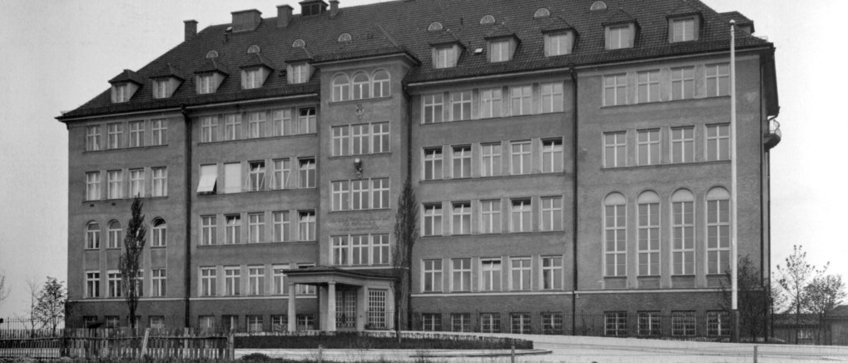
History
The "German Research Institute of Psychiatry", the predecessor of the Max-Planck-Institute of Psychiatry, was founded in 1917. Its broad, interdisciplinary approach set new standards in the fields of psychiatric and neurobiological research.
The more than 100-year history of the institute is currently under critical review, as it is not a pure success story. There were phases in which ethical boundaries were overstepped, psychiatry was politically and ideologically instrumentalized and the welfare of patients was disregarded. This applies in particular to the period of National Socialism.
Nazi past and victim research project
Numerous doctors and researchers at the Institute cooperated with the Nazi regime and shared its ideology. They were able to implement their ideas of "racial hygiene" as part of the National Socialists' "hereditary health policy". They supported and enabled the forced sterilization of people who were marginalized and persecuted by the Nazi state. They knew about the so-called "euthanasia", the murder of people with mental illnesses and mental disabilities, legitimized it scientifically and profited from it: thousands of brain specimens from those murdered ended up at the Institute and were misused there for research purposes - even after 1945.
A critical reappraisal of the Nazi past has been long overdue, and was in some cases actively prevented.
To this day, numerous brain specimens of the victims of Nazi crimes remain in the Institute's historical archive. Only some of the specimens were buried in Munich's Waldfriedhof cemetery in 1990 - anonymously, without naming the victims. Since 2017, independent historians have been researching the identity of the victims on behalf of the MPG, attempting to research their biographies and make commemoration of the victims possible. Once the research project is complete, the remaining specimens will be buried with dignity in Munich's Waldfriedhof cemetery. The names of the victims will then also be inscribed on the gravesite.
Historical Education and Remembrance at the MPIP
The victims of the Nazi medical crimes and unethical research are also commemorated at the Institute itself. A place of historical education and remembrance is being created: an exhibition will focus on the biographies of the victims and provide information about the perpetrators and the context of the crimes. However, this is only the beginning of the remembrance work. In the future, further historical research projects will be supported and made visible at the MPIP.